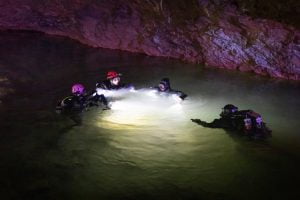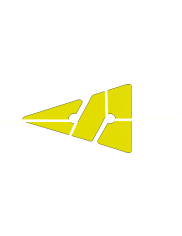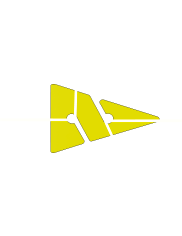
“IF ONLY YOU KNEW THE
POWER OF THE DARK SIDE…”
courses
@SOUTH WEST TECHNICAL DIVING


Are Rebreathers for Me?
Credit to Jeff Bozanic and his article on TDISDI which we have amended slightly to suit our own approach!
“I’m just a regular scuba diver… what would I want a rebreather for? They are for tech divers!”
I hear that all the time. Yes, rebreathers are great tools for tech divers. You can dive deeper, stay longer, decompress less, and carry less weight. But they are just tools. And just as a knife may be used in multiple ways, such as to cut a slab of cheese, or to scrape dirt from beneath your fingernails, rebreathers can be used in multiple ways as well. We will look at manners in which a rebreather might be the right tool for a diver.
What sorts of things do you like to do? Deep Wrecks? Cave? Longer if not deeper? Swim off the beach or lakeshore to dive? Take underwater photographs of fish? Travel to exotic locations like Palau or Grand Cayman? How would rebreathers help with these activities?
I often shore dive. That means walking up and down to get to the entry. If we want to do more than one dive, that means schlepping up and down the stairs multiple times, carrying empty cylinders up and full cylinders down. The rebreather I use weighs about the same as an aluminum 80 cf (11L) cylinder. The difference is that my rebreather will allow me to stay under water for four hours, the equivalent of 4-5 open circuit cylinders. Voila! No more lugging tanks up and down the stairs.
Have you ever bumped into a whale under water? That’s pretty unlikely if you are diving open circuit scuba. Whales, like many marine animals, do not like bubbles. So how do people like Amos Nachoum and Howard Hall get those great photographs and video? Either by free diving or by using a rebreather. Your choice! No bubbles = no scared animals = better pictures.
What was your favorite dive vacation? Did you get enough bottom time in while you were there? If you are like me, I always leave regretting that I did not get “just one more” dive in. What prevents me from doing that? Two issues: (1) when I dive open circuit, I am always fighting for bottom time. By the second or third day, inert gas loading always has me right at the edge of my no decompression limits. Not a happy place! (2) “No diving for 24 hours before you fly home!” Ever heard that before? Good advice, to be sure… or is it? How can a rebreather change these things?
Rebreathers are essentially “on-the-fly” nitrox mixing machines. They are capable of delivering an optimal nitrox blend for whatever depth you are at. If you change your depth, it changes your mix, helping you to optimize bottom time. How much, you ask? Well, the no-decompression limit at 55 fsw is approximately an hour, depending on which tables or computer you use. Using the same tables, your no-decompression limit on a properly set closed circuit rebreather is four hours; that’s quadruple what you can do on open circuit scuba!
For shallow dives, you can set your rebreather so that physiologically, you are on the surface. This lets you do your “surface interval” under water, or dive that last 24 hours before you fly home. In fact, I have done a dive, stripped out of my dive gear in the van on the way to the airport, and stepped onto a plane to fly home within an hour or two of when I surfaced from the dive! And done so with a greater margin of safety than had I not been diving at all!
As a technical and cave diver rebreathers offer unparalleled advantages
- 4-6 hours of resources / dive time. Longer with radial scrubbers and offboards.
- Any problems can be resolved and any extra deco done as there is no ticking clock caused by fast reducing open circuit gas supplies
- Longer NDL’s and shorter decos
- Less load to carry of open circuit cylinders and less chance of switching to the wrong gas at the wrong depth
- Warm moist air to breath
- A second unit as a bailout CCR – we literally wrote the course.
- Silence!
So these are the benefits… but what are the costs?
 First of all, rebreathers are a considerable investment; 8,000- 10,000 with training.
First of all, rebreathers are a considerable investment; 8,000- 10,000 with training.
Rebreathers are more complex pieces of equipment and are not as simple as open circuit gear, at least at this time. Expect to spend more time preparing and maintaining a rebreather. You also will require more frequent diving compared to open circuit scuba to remain practiced and skilled on a rebreather.
There are also more ways to hurt yourself on a rebreather. These are generally avoidable, but that requires practice, knowledge and diligence.
Rebreathers require additional training. The course I teach takes 5-7 days, depending on the unit and how you, as a student, demonstrate competence in the water. How much dive experience should you have before progressing to rebreathers? I have taught non-divers to dive using rebreathers, so their first certification is on a rebreather. That was hard. But harder still was a close friend of mine who has logged 8,000 scuba dives. It took me over 20 dives (as opposed to a more typical 8) to get her comfortable in the water. She had too much patterning subconsciously learned, and I had to break those habits before she could dive a rebreather comfortably. I find that divers with 25-75 hours in the water are the easiest to teach.
The bottom line is that rebreathers, like snorkels and open circuit scuba, are tools. You need to select the tool that is right for you. If you only do one 45-minute dive in a weekend, and are happy with that, then using a rebreather for shore diving probably is of no real benefit. If you are happy shooting macro photographs of kelp, nudibranchs, corals, and gorgonians you probably do not need a rebreather. But if you want to spend hours in the water, or shoot shy fish or even shyer macro critters, perhaps a rebreather is a tool you should consider using. Weigh all the options, the benefits and the costs, and then make a decision for yourself. After all, who better to decide for you than you?


set up a
coffee and
A chat
with a jedi
set up
an online chat
with a sith


upcoming
courses
TRAINING THAT WILL FOREVER
CHANGE THE WAY YOU DIVE!!
diving
liability
insurance

ARE YOU COVERED?
If you plan on traveling and diving,
get one of Diveassure’s exclusive
and comprehensive Dive & Travel
plans….












